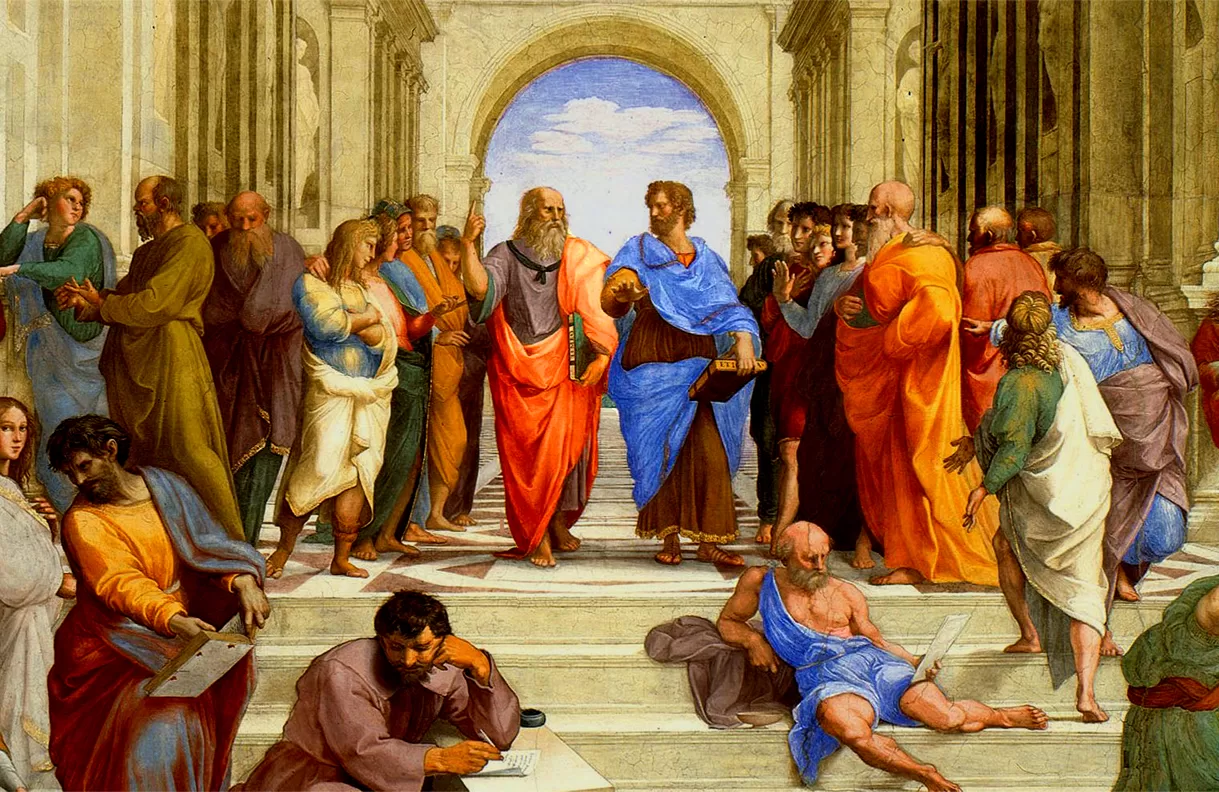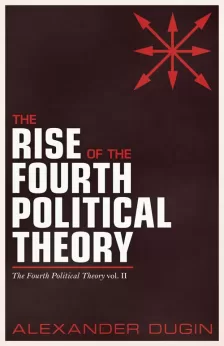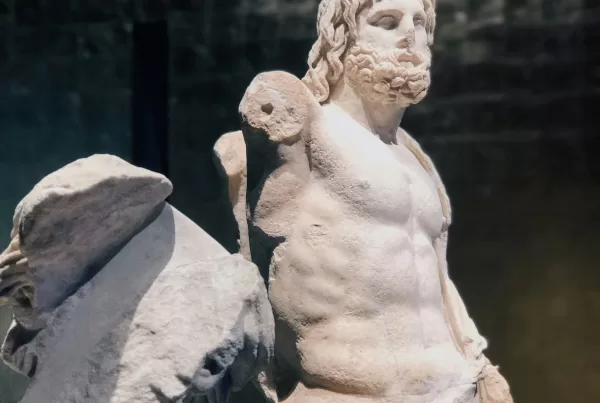I am convinced that our educational systems do not teach classics properly. Taking my own example: I managed to studiously get through university and earn a degree in the liberal arts, with high honours, without ever reading Aristotle or Tocqueville, let alone Homer. No wonder my view of the world was rather stunted.
Actually, the fault is not only that of the educational establishment: classics are often hard for the uninitiated to read, having been written hundreds or thousands of years ago for a very different time and place, and often being of mysterious origin. In the ancient classics, we are reading the very first recorded flickers of human consciousness, suggestive, potent and inscrutable, like the notes one might take immediately upon waking up from the strangest of dreams.
Among all the ancient peoples, none seem to have been so wholly biopolitical as the Greeks. Among no other people was the desire to foster and impose higher life so natural, among no other were manly virtue and reason so combined, leading them to explicitly articulate and justify this world-view. This makes the Greeks particularly worthy of study: in addition to being the founders of our Western civilization, their world-view is surprisingly consonant with our own Darwinian assumptions.
In this article, I would like to briefly go over some of the works of the Hellenic Canon. I hope this signposting will encourage reading and make these works seem less forbidding, for no European movement can triumph without moral self-confidence, and that self-confidence also stems from the intimate knowledge that our efforts based upon the soundest of intellectual and cultural foundations. In addition, the life and thought of each us can only be positively influenced, or even transformed, by engaging with ancient wisdom.
Everyone loves a good adventure story and even children can appreciate the tales in Homer’s Odyssey (my first encounter with the poem was in the form of a charming Australian animated adaptation1). The less paraphrasing of Homer the better. Suffice to say that Odysseus embodies the virtues of the European hero throughout the ages: loyalty, tenacity and cunning, in a story revolving around homeland, identity and destiny. Odysseus is the vital man, whose honour and intellect are in full harmony with his drive for exploration and conquest.
In a similar genre, one can enjoy the writer-soldier Xenophon’s Anabasis, his account of his service with the expedition of the Ten Thousand Greeks who invaded and successfully escaped from Persia. Besides being an enjoyable tale, the work showcases the necessarily violent birth of the State, founded by a responsible Männerbund, as well as the virtues of leadership.
Marcus Aurelius’ Meditations are perhaps the most succinct introduction to ancient philosophical ethics. One is not shown the arguments and speculations surrounding ethics, boring and confusing to many, but rather the conclusions: a synthesis revealing ancient ethics in practice in the form of a Roman emperor’s spiritual diary. Reading of the Meditations can indeed be a transformative experience. Marcus Aurelius is the pious man, ever training himself in self-mastery, for the good of his community.
Aristotle’s Politics can and ought to be read by all people who claim to have an interest in public affairs. We can hear the Stagirite philosopher speak to us through these fossilized lecture notes, whose points are always graspable, empirical and practical. Aristotle’s usual method of listing practices and opinions on his subject makes this a fine introduction to ancient Greek politics and indeed politics in general. In terms of principles, Aristotle makes a powerful case for a eudaimonic, communitarian, and biopolitical republicanism, one in no way tainted by later ‘slave morality’ or liberal entitlement. In many ways, even after over two millennia, the Politics ought to be our baseline for the kind of politics we want to see: Plato may be more ambitious and inspiring, but Aristotle is more grounded and palatable.
More generally, many of Aristotle’s works can be profitably read by most anyone, whether his Nicomachean Ethics (on personal behaviour), Poetics (on creative writing), Rhetoric (on persuasion), and so on. Aristotle presents in a formally academic way the unabashedly aristocratic way of life and skills of the ancient Greeks.
Plato in many respects represents the summit of philosophy. If Aristotle was a scientist and perhaps even an academic in the modern sense, Plato was something of a poet [sic] himself and a great spiritual reformer. His work can be charming, stimulating, and inspiring. But he is not holding your hand. With their paradoxes and mysteries, the vast corpus of Platonic dialogues forms a great koan, or riddle. No one but Plato could have become so honoured by circles as diverse as the ancient intelligentsia, the Church Fathers, the American Transcendentalists, or indeed the Third Reich. But this enigmatic philosopher can also be annoying: Jefferson was quite disgusted by his Republic and Nietzsche never forgave Plato, Socrates, and/or Plato’s Socrates for turning philosophy into a game of definitional hair-splitting, of nerds demoralizing jocks.
Still, one does not need to be a professional philosopher to profit from and enjoy Plato. The tetralogy on the last days of Socrates2 can only move and inspire those who are on the quest to find, speak and live the truth, especially in a democratic age.
The Republic, that famous book, is perhaps the best synthesis of Plato’s project, with his jokes, his provocations, his logical extremes… putting in parallel the philosopher’s spiritual quest for truth and the politician’s quest for a superior state, all the while never forgetting, as so often happens among both ancient and modern moralists, the biological foundations of the human endeavour.
If all this seems too elevated, one must read Plato’s Seventh Letter, which, whether authentic or not, instructively spells out the practical implications of Platonic philosophy for personal life and political activism.
The lengthy Laws have a bad reputation; and certainly much material is covered in a more approachable manner in the Politics and much is of purely historical interest. Nonetheless, the work has its charms and insights, and can be enjoyed if read in the right mindset. The Laws makes clear that Plato’s philosopher is not lost in the clouds, but is dedicated to decidedly practical, realistic and ambitious socio-political transformation. One can surmise that much of his project in fact is a rare description of Spartan practice.
There are many other Platonic works, dealing with epistemology, ethics, metaphysics, the soul and so on. Suffice to say that Plato saw no contradiction between biology and the spiritual quest, and this makes him supremely valuable. And he undertook all these things while sharing a wholesome chuckle.
Alongside Plato, one can very profitably turn to Xenophon’s own Socratic dialogues.3 Academics have often found Xenophon’s Socrates less profound, but these dialogues – which were very highly rated by Nietzsche – are more approachable, arguably more constructive, and certainly more immediately morally instructive. One discovers discovers a Socrates who is a cogent critic of individualist, egalitarian, and rootless-cosmopolitan excess, and who artfully makes the case for community, discipline, and self-cultivation.
There is much to learn from the ancient historians, but their wisdom is buried in their very lengthy works, which being chronicles or annals, are necessarily ‘one damn thing after another’ (of often highly uncertain reliability, at that). Thus, unless you want to know the full details, you can settle for extracts of the most famous passages.
I am personally quite partial to Herodotus: his tales are often implausible and yet, taken as a whole, are full of wisdom and insight. High points include the meeting between Croesus and Solon, the discussion of King Nomos (‘Custom is King’), the Persian Debate on forms of government, and the heroic portrayal of Athens and Sparta’s victory over the Persians, with many iconic scenes and bons mots (many of which, in fact, made it into the film 300).
Thucydides is the first surviving author whom we would consider a true historian, as opposed to a tale-teller. His work is long, dry and bitter. Memorable passages include the Introduction on writing history, the famous Melian Dialogue on the Athenians’ extermination of recalcitrant subjects, the portrayal of Civil War, the final battle of the Sicilian Expedition, and especially Pericles’ Funeral Oration, that moving and eloquent defence of the Athenian democracy.
From later times, Polybius is a fine chronicler of the rise of the Roman Republic. Strikingly modern passages on the writing of history, and in particular ‘universal history’, can be found in Books I and XII. Book VI contains a famous account of the Roman constitution’s virtues, especially the balance between social orders, which proved quite influential on modern republicans.
Concerning Plutarch, I can only speak of his works on Sparta, especially the Life of Lycurgus and the collected Sayings of the Spartans. These, along with Xenophon’s brief Constitution of Sparta, are the longest works dedicated exclusively to that famous yet mysterious austere city-state. These must be studied alongside Pericles’ Funeral Oration as laying the foundations for Western civic politics: one discovers a lawful, communitarian and biopolitical regime, which in Plutarch’s idealized description expresses an uncommon combination of ancient wisdom and manly virtue.
The various Pre-Socratic and Sophistic thinkers,4 surviving in fragments, are necessarily enigmatic and highly heterogeneous. While much is bizarre, one also finds much which can resonate with a modern: deep insights on the nature of reality, genuinely scientific observations and theories (‘the sun… is a fiery stone larger than the Peloponnese’!), and familiar socio-political debates, sometimes of a subversive character.
The Golden Verses, attributed to Pythagoras, are a synthesis of ancient philosophical ethics in the form of a regularly recited quasi-religious poem. That the ancient philosophical schools did not evolve, as Buddhism did, into popular and institutionalized religions preserved them from certain distortions, but also meant that they did not survive as lived traditions.
From beyond the grave, the sayings and life of Diogenes the Cynic5 forever shame us for our inconsequence.
If Diogenes’ antics appear incomprehensible, one may turn to the last pagan emperor Julian’s Letters for fiery and eloquent explication, as well as broader insight into pagan religion and philosophical practice (his religious and political Orations, in contrast, may leave the modern rather cold).
One can learn much the same thing from the Discourses of Epictetus, who again and again explains and affirms the daily practice and mindset of the Stoic. The Stoic way of life is cogently summarized in his Manual (Enchiridion), which can be used as a helpful day-to-day ethical guide, and indeed was used as such for centuries by the Orthodox Church.
To return to the primordial poets, Hesiod’s Theogony intuits the great passions and violence at the origin of things, while his Works and Days is a synthesis and catechism of peasants’ hard-won wisdom and common sense, much as valid then as today.
Homer’s Iliad is the more difficult, the deeper and the more awesome of his two poems: one finds expressed with unique power those terrible terrible forces of love and war, the sheer force, at the origin of all life.
Footnotes










Nice succinct overview and sensible recommendations. Tacitus is my favorite, Homer was a thrill to read, though one had to lean by heart a totally different vocabulary to do so. Virgil seemed a cheap imitation, but with beautiful and memorable lines. Still, there is a problem with the true antiquity of classical authors. Mind you that people like Jean Hardouin and Robert Baldauf and numerous others considered much of “classical” literature to be actually products of renaissance authors such as Poggio Bracciolini and Petrarca. If they are correct, and there are solid reasons for assuming they are, this would not mean that classical literature is worthless. It remains great, though perhaps not dating from antiquity.
Good review of the classics. I would have mentioned Heraclitus and also I’d have mentioned that Aristotle first made the timeless distinction between business and usury. Still, good article.